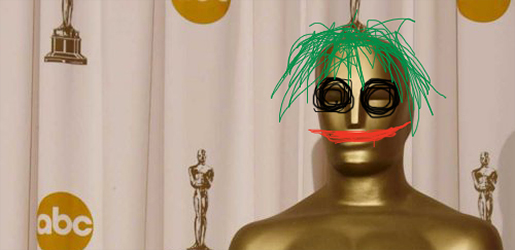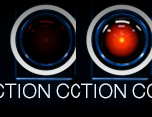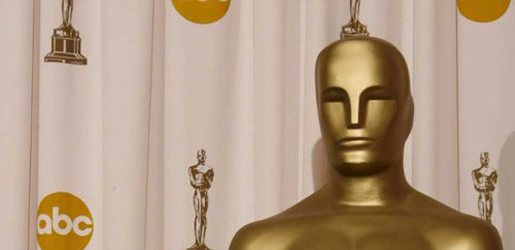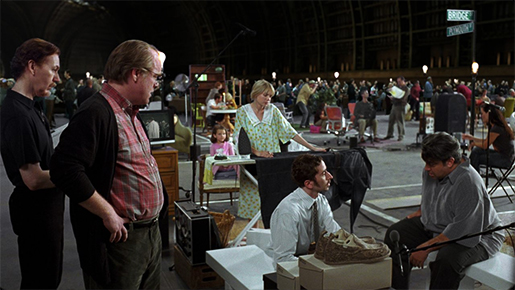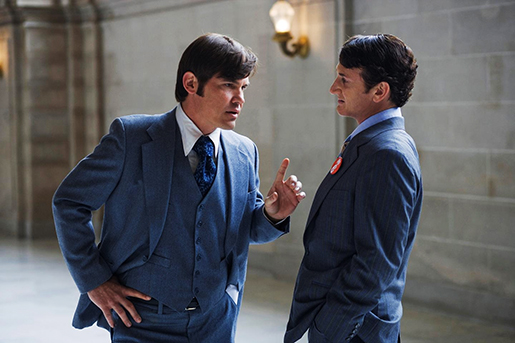
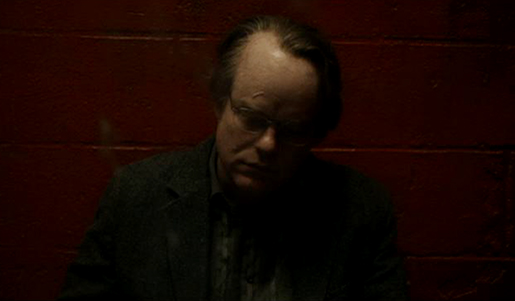
The Life Stages of Caden Cotard
Oh God, I feel alone. I feel so utterly alone having connected and clicked with a film that many people will reject. This being the directorial debut of the incomparable screenwriter Charlie Kaufmann: Sï-nêk’dõ-kë, Nyöo Yáwrk. For me, Synecdoche, New York is a tough sell — an unconventional film that I treasure where recommendation demands caution. It’s where I stand with Béla Tarr’s Werckmeister Harmonies (2000), Lars Von Trier’s Breaking the Waves (1996), Bill Forsyth’s Housekeeping (1987) and Robert Altman’s Three Women (1977). These films fly in the face of all the formulaic and commercial creeds of how a movie should work and gives pause for how many ways it could work best. A first impression might grimace, conclude “it’s weird” and close the investigation — that’s their right; however, Synecdoche, New York deserves better and an appreciative audience. The film works, not despite, but because of its extraordinary structure and function being mysterious, opaque, labyrinthine, yet emotional, accessible, and fully-formed.
What I love most about Charlie Kaufman’s exercises in the celluloid medium is how they exceed expectations throughout his most unorthodox and dizzying narratives. Throughout, there is apt teasing and suspense over where this story could go when driven by such a visionary. By the end, I feel as if he has exhausted every possibility from his premises with an attentive heart. Such as when the pitiable Craig Schwartz whose puppets of himself and Maxine, a distant female co-worker, kiss for the first time in Being John Malkovich (1999). Or when Joel Barish frantically races away from his evaporating memories with his ex-girlfriend Clementine at hand, trying to save her in Eternal Sunshine of the Spotless Mind (2004). Or how about when in Adaptation (2002), New Yorker writer Susan Orlean is struck by the awesome poetry of John Laroche, a toothless orchid thief, musing about the “little dance” between wasps and orchids — “How, when you spot your flower, you can’t let anything get in your way.”
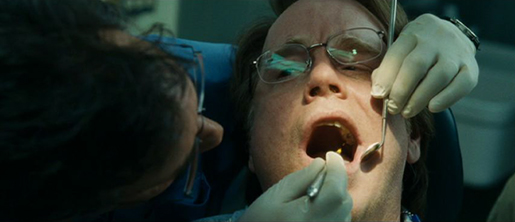
In Synecdoche, New York, our hero tries to find meaning in his very existence by resurrecting an evolving metropolis in a gigantic sound-stage where a flock of birds fly off many miles down the structure. The seminal replica of Manhattan is a theatre set for an untitled play about its director and all of the people in his life. Since the play reflects life, so the play must reflect itself like a microcosm that expands, refracts, grows and deepens. It is a comic-tragic, universal illustration of a life that tries to manage its surrounding citizens in roles (wife, daughter, mistress, 2nd wife, etc.) the participant tries to contain. Of course, everyone else is the lead in their own story, so management of the play of one’s life becomes discombobulated.
Enter the world of theatre director Caden Cotard played with great nerve and without vanity by Philip Seymore Hoffman. At age forty, he is burdened with anxiety, bad health, failed relationships, and occasionally distracted by lofty goals that feed his great ego which barely hides his low self-esteem. Like an addict, he mercilessly prods, analyzes and compresses his failures; denying himself a much wanted recovery by purging himself deeper into a sea of emotional toxin. What hurts most is that he tries so hard to preserve what little he has left. While a doctor sews stitches into his forehead after a freak accident with an exploding sink faucet, Caden sheepishly remarks, “I’d rather there not be a scar.”
CONTINUE READING ►
